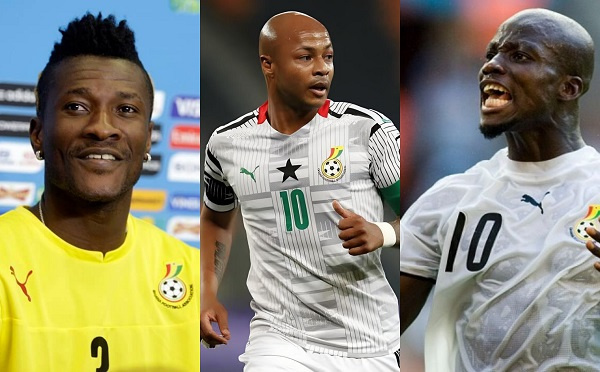
The unfair treatment of Ghana's Black Stars captains: A legacy ignored
In football, the role of a captain extends beyond merely donning the captain's armband; it encompasses leading both on and off the field, setting an example, and serving as a source of inspiration and motivation to teammates.
Advertisement
A captain is expected to embody the team's values and spirit, and their leadership can significantly impact the team's success. This often results in the best players not necessarily assuming the role of captain.
Adedi Ayew Pele stands out as one of the greatest captains in Ghanaian football history. Over his six-year captaincy of the Black Stars, Pele demonstrated exceptional leadership skills, fostering unity within the team. Although the Black Stars did not secure any trophies during his tenure, Pele's exclusion from the squad in the 1992 tournament is believed by pundits to have influenced the outcome.
Following Pele's era, the captaincy lacked stability, with Charles Akonnor briefly holding the position without establishing a lasting leadership role. The captaincy became a game-dependent decision, with different players assuming the responsibility at various times.
It wasn't until Stephen Tornado Appiah assumed the captaincy in 2005/06 that stability returned. Appiah, a product of Ghana's youth system, led the Black Stars with passion and determination, instrumental in their historic qualification for the 2006 FIFA World Cup.
Appiah's absence during the 2008 Africa Cup of Nations underscored the significant impact a captain can have on a team. The team struggled without his leadership, emphasizing the importance of a stable and influential captain.
Asamoah Gyan succeeded Appiah as captain, showcasing leadership on and off the field. However, controversies surrounding the introduction of a General Captain led to Gyan's resignation.
Dede Ayew, son of Adedi Ayew Pele, assumed the captaincy in 2019, bringing with him experience and commitment to the Black Stars. Like his predecessors, Ayew has faced criticism, revealing the challenges of the captaincy role.
To ensure consistent leadership within the Black Stars, it is crucial to honour and respect former captains, seeking their guidance and blessings. The Ghana Football Association and the government should acknowledge their contributions to the team's success.
Honouring former captains establishes a tradition of respecting leaders, ensuring a positive transition of leadership. Seeking blessings could alleviate bitterness and strengthen bonds between past and present players.
I suggest that Dede Ayew should remain the substantive captain until his voluntary retirement or medical unfitness. His determination, dedication, and sacrifice for the national team make him a vital asset.
In conclusion, finding a stable and respected captain is crucial for the Black Stars' success. Captains should not be treated like any other player, and the team has seen both periods of inconsistency and inspiring leaders. It is vital to honour past captains and seek their blessings as the team moves forward. The writer recommends holding a last commemorative match for retiring captains, starting with the current captain.
With unity and focus, the Ghana Black Stars have the potential to end their 41-year Africa Cup of Nations drought and bring glory to the nation.




